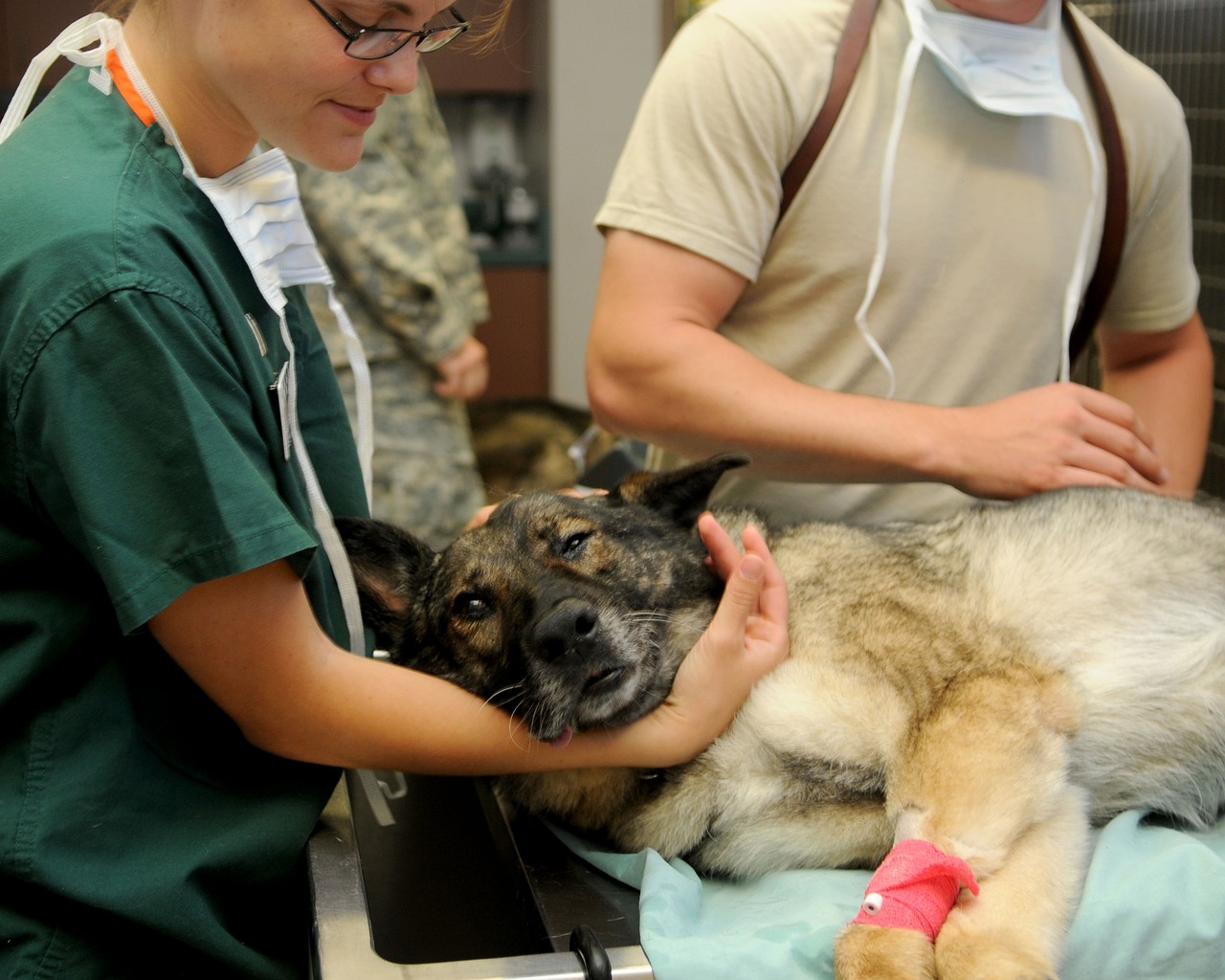Running a veterinary hospital requires more than great medicine—it demands skilled leadership and efficient management. A veterinary practice manager ensures that clinical excellence is supported by smooth operations, financial stability, and strong client relationships. Without structured leadership, even the best veterinary teams struggle with inefficiencies, miscommunication, and staff burnout.
Pulivarthi Group is a trusted veterinary practice manager staffing agency, helping hospitals recruit operations leaders who balance the needs of doctors, technicians, and clients. Whether you need permanent practice management recruitment, locum veterinary practice manager staffing for transitions, or temporary coverage during leadership gaps, we deliver solutions tailored to your business. As a dedicated veterinary practice management recruitment firm, we understand both the medical and administrative sides of running a hospital—and we connect you with leaders who excel at both.
Why Hire a Veterinary Practice Manager
Hiring a veterinary practice manager is not just about filling an administrative role—it’s about driving growth, efficiency, and staff engagement. Practice managers handle everything from HR and scheduling to financial planning and compliance. Therefore, their presence allows veterinarians to focus on medicine while ensuring the hospital runs like a business.
Clients benefit as well. With structured workflows, wait times shorten, communication improves, and client loyalty grows. Moreover, practice managers foster strong team cultures by implementing training, recognition programs, and conflict resolution strategies. Without this leadership, veterinary hospitals risk high turnover, poor client experiences, and declining profitability.
Benefits of hiring a veterinary practice manager include:
-
Stronger operational efficiency and workflow design.
-
Increased client satisfaction through smoother service delivery.
-
Improved financial performance and cost control.
-
Higher staff engagement and lower turnover.
-
Better compliance with OSHA, DEA, and state regulations.
For management standards, see Veterinary Hospital Managers Association (VHMA) (vhma.org).
Types of Veterinary Practice Manager Roles
The role of a practice manager can vary depending on hospital size and complexity. Veterinary practice administrators often oversee multi-location practices, handling budgets, compliance, and human resources. In smaller hospitals, business managers focus on client service and operational workflows.
During leadership transitions, locum veterinary practice managers provide stability, maintaining schedules, vendor contracts, and staff engagement. Hospitals may also bring in temporary practice managers to cover parental leave or onboarding gaps. In high-growth practices, contingent practice management staffing provides project-based leadership for expansions, remodels, or acquisitions.
Role types include:
-
Veterinary Practice Administrator
-
Veterinary Business Manager
-
Veterinary Operations Manager
-
Locum Veterinary Practice Manager
-
Temporary or Contingent Manager
-
Multi-Site or Regional Practice Leader
Pulivarthi Group Veterinary Practice Manager Staffing Services
Pulivarthi Group offers flexible veterinary practice manager recruitment solutions designed to fit every hospital’s needs. First, we align with your operational goals—whether that’s stabilizing daily operations, leading an expansion, or reducing turnover. Then, we source candidates with proven experience in veterinary-specific leadership.
Our permanent practice manager recruitment provides long-term leaders who shape culture and financial strategy. Temporary and locum staffing ensures continuity during leadership gaps, while contingent staffing models deliver project-based management. In addition, our executive search services identify practice directors and regional leaders for multi-site operations.
Our services include:
-
Permanent Veterinary Practice Manager Staffing
-
Temporary Practice Manager Staffing
-
Locum Veterinary Practice Manager Staffing
-
Contingent Management Recruitment
-
Executive & Regional Practice Leadership Search
Where Employers Find Veterinary Practice Managers
Finding qualified practice managers can be difficult because the role requires both veterinary knowledge and business expertise. Many hospitals look to the Veterinary Hospital Managers Association (VHMA) for certification programs and candidate networks. Some also recruit from general business management backgrounds, but this can extend onboarding time.
While job boards can reach a wide audience, they often yield inconsistent results. Therefore, partnering with a veterinary practice manager employment agency like Pulivarthi Group is the most efficient path. We maintain a network of practice leaders who understand veterinary-specific compliance, staffing, and financial dynamics.
Sourcing channels include:
-
Specialized staffing agencies (Pulivarthi Group).
-
VHMA-certified managers.
-
Business managers transitioning into veterinary roles.
-
General job boards (limited efficiency).
Hiring Challenges and Solutions
Recruiting a practice manager is challenging for several reasons. First, finding candidates with both business and veterinary knowledge can be difficult. Many skilled business managers lack familiarity with veterinary-specific regulations, while some veterinary professionals may lack leadership or financial training.
Second, culture fit is critical. A strong practice manager must balance the needs of veterinarians, technicians, and clients while keeping the business profitable. If alignment is poor, conflicts may rise, leading to staff turnover.
Finally, retention is a challenge. Practice managers carry significant responsibility, and burnout can occur without proper support. Hospitals must ensure that expectations are realistic and that managers have authority aligned with accountability.
Challenges include:
-
Balancing business and veterinary knowledge.
-
Aligning leadership style with hospital culture.
-
Preventing manager burnout.
-
Limited training pipelines.
For certification pathways, see Certified Veterinary Practice Manager (CVPM) program (vhma.org).
Qualifications and Licensing Checklist
While there is no universal requirement for veterinary practice managers to hold clinical credentials, the best candidates usually combine business acumen with veterinary industry knowledge. At minimum, a practice manager should have prior experience in healthcare administration or veterinary operations. Many also hold certifications such as the Certified Veterinary Practice Manager (CVPM), which demonstrates mastery of HR, finance, marketing, and legal compliance.
Additionally, candidates must be comfortable managing compliance with OSHA safety regulations, DEA controlled substance standards, and state veterinary board rules. For hospitals with multiple locations, knowledge of multi-site business management is valuable. Continuing education in leadership, HR law, and financial management ensures practice managers remain current in a changing regulatory environment.
Qualification checklist includes:
-
Bachelor’s degree in business, healthcare, or related field (preferred).
-
Veterinary-specific management experience.
-
CVPM certification (highly recommended).
-
Knowledge of OSHA and DEA compliance.
-
HR, payroll, and staff scheduling experience.
-
Continuing education in management and leadership.
For certification info, see VHMA CVPM program (vhma.org/cvpm).
Sample Veterinary Practice Manager Job Description
Role Summary
We are seeking an experienced Veterinary Practice Manager to oversee operations, finances, and staff management in a growing multi-doctor hospital. The practice manager will lead scheduling, compliance, and client service initiatives, while ensuring doctors and technicians are supported in delivering excellent patient care.
Key Responsibilities
-
Manage daily operations, staff scheduling, and HR functions.
-
Oversee financial management including budgeting, payroll, and expense tracking.
-
Ensure compliance with OSHA, DEA, and state regulations.
-
Develop marketing strategies and client retention programs.
-
Lead performance reviews, staff training, and conflict resolution.
-
Collaborate with veterinarians on workflow efficiency.
Qualifications
-
Bachelor’s degree or equivalent experience.
-
CVPM certification (preferred).
-
Minimum 3–5 years in veterinary or healthcare management.
-
Strong leadership, financial, and HR skills.
For job templates, see AVMA career resources (avma.org).
Sample Interview Questions for Veterinary Practice Managers
Interviewing practice managers requires assessing leadership style, financial skills, and culture fit. Questions should uncover problem-solving ability and communication style.
Examples include:
-
How do you balance the needs of veterinarians and support staff while keeping operations efficient?
-
Describe your experience managing budgets and payroll in a veterinary or healthcare setting.
-
Tell us about a time you resolved a staff conflict. What was your approach?
-
How do you handle compliance with OSHA and DEA regulations?
-
What strategies do you use to improve client retention?
-
How do you measure success in practice management?
For leadership interview strategies, see Society for Human Resource Management (SHRM) (shrm.org).
When to Hire a Veterinary Practice Manager
The right time to hire a practice manager often becomes clear when veterinarians are spending more time managing operations than practicing medicine. If doctors are overwhelmed with scheduling, HR disputes, or financial planning, then a practice manager is urgently needed.
Other triggers include rapid hospital growth, multi-location expansion, or high staff turnover. When client satisfaction declines due to long wait times or poor communication, structured leadership is also essential. Ultimately, hiring a practice manager frees veterinarians to focus on clinical care, while the manager ensures smooth business operations.
Key triggers include:
-
Veterinarians handling too much administrative work.
-
Rapid practice growth or expansion.
-
Rising staff turnover or culture challenges.
-
Declining client satisfaction scores.
-
Need for compliance oversight.
How to Evaluate Veterinary Practice Manager Skills
Evaluation should go beyond resumes. Employers should conduct scenario-based interviews to test decision-making under pressure. Case studies in financial management, HR, or compliance are especially valuable.
Working trials can provide insights into leadership style, communication, and staff engagement. Employers should also gather references from prior veterinary or healthcare teams to assess consistency. Reviewing certifications such as CVPM adds credibility to a candidate’s skills.
Evaluation methods include:
-
Scenario-based interview questions.
-
Review of financial and HR management experience.
-
Working trials and shadowing opportunities.
-
Peer and staff reference checks.
-
Verification of certifications (CVPM, HR training).
Compensation and Rewards for Veterinary Practice Managers
Compensation for veterinary practice managers varies by hospital size, location, and responsibilities. Salaries typically include a base salary plus performance incentives tied to profitability, client satisfaction, or staff retention.
Hospitals should also provide continuing education funding, certification support, and health benefits. Flexible scheduling and opportunities for advancement are critical for retention. In multi-site practices, regional practice managers may command higher compensation due to larger responsibility.
Typical compensation includes:
-
Base salary plus performance bonuses.
-
CE and CVPM certification reimbursement.
-
Health, retirement, and wellness benefits.
-
Relocation assistance for multi-site leaders.
-
Incentives tied to hospital performance metrics.
For salary benchmarks, see AVMA salary reports (avma.org/resources-tools/reports).
SOPs Worth Formalizing in Practice Management
Strong practice management requires clear Standard Operating Procedures (SOPs) to ensure consistency. SOPs should cover staff scheduling, payroll processing, client communication, and compliance audits.
Additionally, practices should implement SOPs for conflict resolution, staff training, and client retention programs. Financial SOPs—including budget reviews, vendor negotiations, and expense tracking—help keep hospitals profitable. OSHA and DEA compliance procedures must also be formalized and documented.
Essential SOPs include:
-
HR and staff scheduling protocols.
-
Payroll and financial management systems.
-
OSHA and DEA compliance documentation.
-
Client communication and retention workflows.
-
Conflict resolution and staff recognition programs.
Retention Strategies for Veterinary Practice Managers
Practice managers carry significant responsibility, so retention requires strong support systems. Predictable work hours, decision-making authority, and recognition all contribute to long-term satisfaction.
Hospitals should provide opportunities for continuing education and professional growth, including support for certifications like CVPM. Regular performance reviews and open communication with ownership ensure managers feel empowered. Additionally, wellness programs and leadership retreats can reduce burnout and strengthen loyalty.
Effective retention strategies include:
-
Clear authority and decision-making support.
-
CE and certification funding.
-
Wellness and leadership programs.
-
Recognition for operational successes.
-
Growth pathways into regional or multi-site leadership.
For leadership retention best practices, see Harvard Business Review (hbr.org).
How Pulivarthi Group Delivers Veterinary Practice Manager Staffing
Pulivarthi Group provides tailored veterinary practice manager recruitment services, ensuring hospitals gain leaders who combine business skills with veterinary-specific knowledge.
Our process begins with intake, where we align on culture, financial goals, and leadership needs. We then source candidates from VHMA networks, CVPM-certified professionals, and passive candidate pools. Candidates are screened for financial management, HR expertise, and leadership style.
We deliver calibrated shortlists, coordinate interviews, and manage reference checks. Post-placement, we gather feedback to ensure long-term success. Whether you need permanent leaders, locum managers, or contingent staffing for specific projects, Pulivarthi Group ensures your hospital runs smoothly.
Ready to Hire a Veterinary Practice Manager?
Leadership is the backbone of any successful veterinary hospital. Hiring a veterinary practice manager ensures that operations, finances, and staff are aligned for long-term success.
Pulivarthi Group is your trusted veterinary practice manager employment agency, offering permanent, locum, temporary, and contingent recruitment services. With pre-vetted candidates and industry expertise, we deliver practice leaders who drive growth and stability.
Don’t let operational inefficiencies slow your practice down. Book a meeting with Pulivarthi Group today to access a tailored shortlist of veterinary practice managers who are ready to lead your team.














